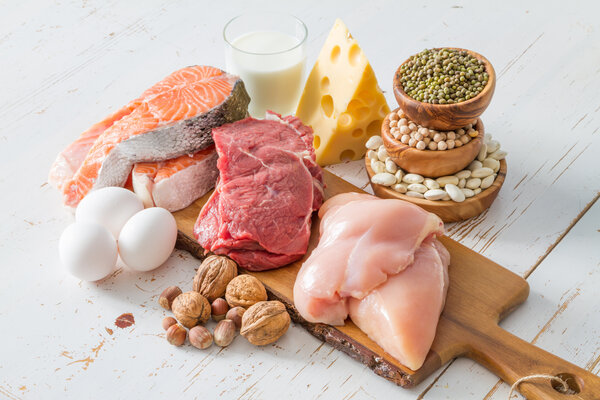Did you know that proteins differ depending on their source? Were you aware that protein can help you lose weight and maintain muscle mass? If this sounds new to you, you’re in the right place.
In the next few minutes, you’ll learn more about protein intake and its dos and don’ts to reap the benefits for your body and health. Keep reading to learn more!
The Dos
The following are essential aspects of protein intake:
Spread Your Protein Intake Throughout The Day
Unfortunately, many people consume most of their protein during dinner, which isn’t ideal. It’s advisable to spread your protein intake throughout the day. This means you should eat protein in the morning, at lunchtime, and during dinner and use protein bars as a healthy snack.
Nutritionists recommend women consume 45 grams of protein daily and 55 grams for men. However, you shouldn’t eat this amount all at once but throughout the day. Protein is among the fast-filling foods that regulate hunger by making you feel full for longer. Therefore, distributing your protein intake throughout the day will prevent you from snacking frequently, helping you lose or maintain body weight.
If you’re an exercise enthusiast, consider consuming 30 grams of protein within 30 minutes after your session. This way, you get enough nutrients to repair your tissues, resulting in less soreness.
Consume The Right Amount Of Protein
According to the Dietary Reference Intake (DRI), an individual should consume 0.8 grams of protein per body kilogram. However, age, muscle mass, and activity level are other factors determining the amount you consume daily. Consider these factors when calculating the amount of protein you need daily, or consult a nutritionist for accuracy.
Consuming excess protein can harm your health since it might cause a metabolic burden on your kidneys, bones, and liver. Additionally, consuming too much protein can result in coronary heart disease due to high saturated fat intake.
Get The Most Protein From Whole Foods
While you can quickly get your daily protein intake through supplements, the ideal source of protein should be whole foods like fish, red and white meat, eggs, chicken, dairy products, and nuts. Although protein supplements have similar health benefits, finding authentic supplements among the many counterfeits on the market might be challenging. However, if you must boost your daily protein intake with supplements, consider researching thoroughly or getting a prescription from a reputable nutritionist.
High protein food – fish, meat, poultry, nuts, eggs and vegetables. healthy eating and diet concept. top view
The Don’ts
Here are the don’ts of protein intake:
Don’t Assume All Proteins Are The Same
Protein is found in nuts, meat, dairy products, and fish. Proteins in these food groups differ in quality and amino acid content. For instance, meat provides good protein with all amino acids. However, it’s packed with saturated fat, which might not be ideal for your health. You should be careful when selecting meats and only consume lean meat.
Fish, on the other hand, is also rich in vitamins but low in saturated fats. However, it’s an ideal source of omega fats, while plants like lentils and quinoa are also packed with protein and are perfect protein sources for people who don’t eat meat. Consuming protein from all food groups ensures you don’t overindulge in a particular type.
Don’t Rely On Protein Alone
While protein is necessary for cell formation and repair, this doesn’t mean your meals should only contain protein. A well-balanced diet should consist of three macronutrients, and protein is among them.
Consuming proteins alone increases your chances of developing acute or chronic health conditions like excessive weight loss, especially since proteins make you feel full quickly. Ensure your meals contain fat, carbohydrates, and protein; don’t ignore their importance to your health.
Don’t Ignore Protein If You’re On A Weight Loss Journey
Contrary to what most people think, protein is among the best foods that can help you lose weight. How, you might ask? As stated earlier, protein is a fast-filling food that makes you feel full for longer.
This means you stay full for an extended period after consuming protein. As a result, snacking, which is among the primary causes of weight gain, won’t be necessary. With that in mind, maintain your protein intake even if you’re on a weight-loss journey.
Conclusion
There’s a lot of controversy when it comes to consuming protein. This is especially true regarding how much one should consume and from which sources. Unfortunately, some people avoid consuming protein while others overindulge. However, this shouldn’t be the case. You should consume the right amount of protein from various food groups and avoid unhealthy habits like overconsuming it to benefit your health.
